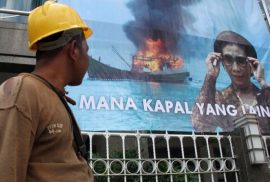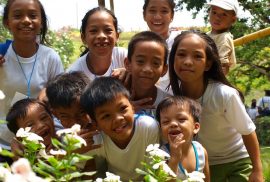The news of sinking foreign ships that steal fishes in Indonesian territorial waters lately has become more widespread. Almost all mass media preach about this government action. This action is not new in Indonesia, it’s just that the news has just been noticed by the media, and it is considered unusual therefore it gets attention from the public.
In this era of globalization where relations between countries become something important, especially Indonesia’s relationship with countries in ASEAN the strict action of a country to foreigners will of course affect the good relations of both countries. If we look through the case of the sinking of this foreign ships, then the Indonesian government’s actions that bombing the foreign ships without negotiate with its home country can be inferred to affect the good relations of both countries.







